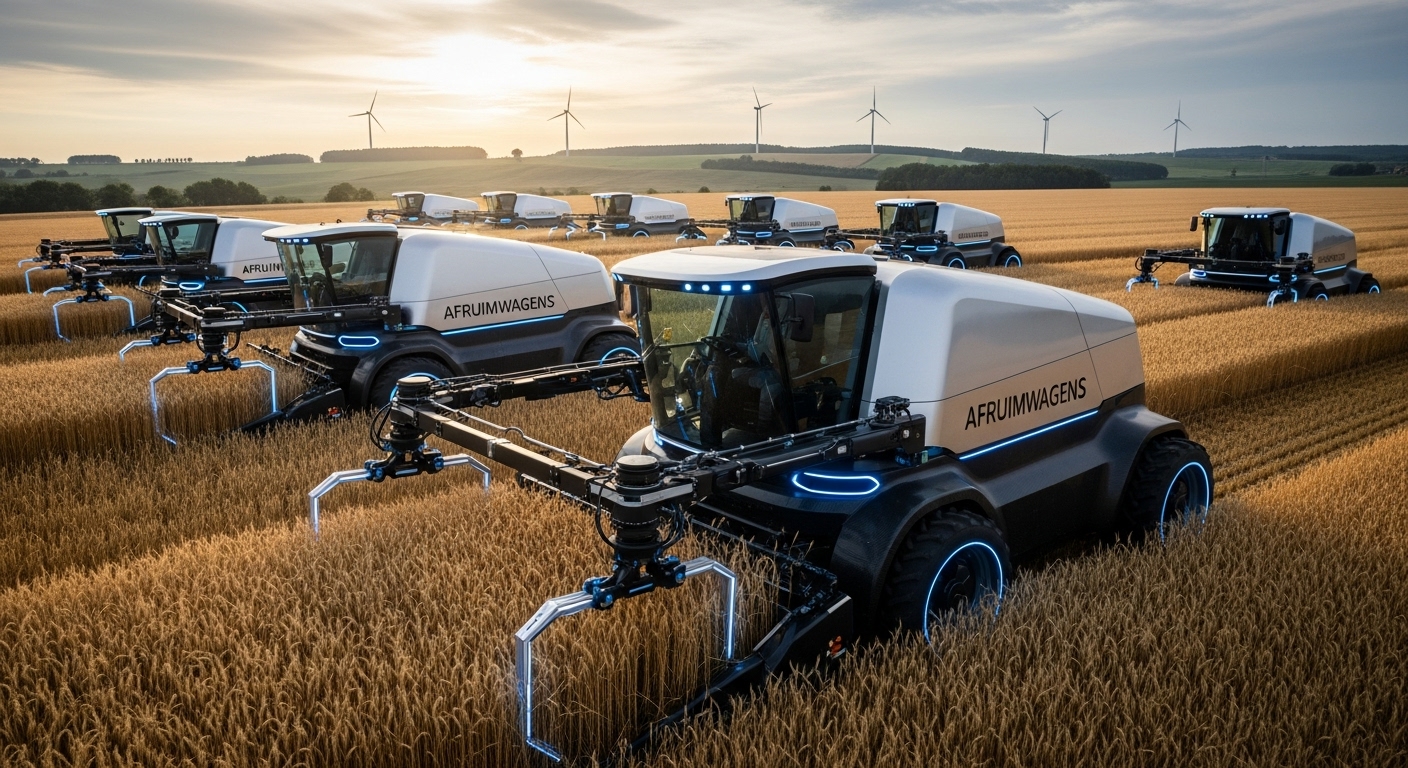
Afruimwagens: The Modern Revolution in Agricultural Harvesting
In today’s agricultural world, efficiency and innovation are crucial for maintaining productivity. Afruimwagens have emerged as a modern solution to revolutionize the harvesting and transportation processes in farming. These advanced machines are designed to collect, transport, and process harvested crops efficiently while reducing manual labor and minimizing crop damage. The rise of Afruimwagens reflects how technology continues to reshape the agricultural industry, offering farmers both time and cost-saving advantages.
Afruimwagens are not just simple transport vehicles—they represent a blend of mechanical precision, engineering efficiency, and sustainable design. Whether used for grain, vegetables, or fruit collection, Afruimwagens have become a vital asset on modern farms around the world.
Understanding What Afruimwagens Are
The term Afruimwagens comes from the Dutch language, meaning “clearing wagons” or “harvest trailers.” These machines are specially built to handle large volumes of agricultural produce. They can be towed by tractors or function independently, depending on their design and purpose.
The versatility of Afruimwagens allows farmers to use them in multiple harvesting processes such as:
-
Collecting freshly harvested crops from fields
-
Transporting products to storage areas
-
Loading produce directly into processing machines
The technology behind these machines ensures that they can handle delicate produce with minimal damage while maintaining a high speed of operation.
The Importance of Afruimwagens in Modern Agriculture
The role of Afruimwagens in farming cannot be overstated. As the global demand for food increases, farmers need to maximize efficiency while maintaining the quality of their crops. Afruimwagens help achieve this goal by combining automation, precision, and durability.
| Feature | Function | Benefit |
|---|---|---|
| Hydraulic System | Controls lifting and dumping | Increases operational speed |
| Shock Absorbers | Reduces vibration during transport | Protects delicate produce |
| Automatic Loading | Simplifies the collection process | Saves time and labor |
| Adjustable Capacity | Fits various crop sizes | Enhances flexibility |
| Eco-friendly Design | Reduces fuel use and emissions | Promotes sustainability |
This table highlights the key features of Afruimwagens that make them indispensable in today’s agricultural practices.
How Afruimwagens Improve Harvest Efficiency
Efficiency in harvesting is one of the most significant benefits offered by Afruimwagens. Traditional methods often involve heavy manual labor, time-consuming transportation, and crop losses. Afruimwagens eliminate many of these challenges by offering automated movement, better load management, and optimized field performance.
When combined with modern GPS and smart farming systems, Afruimwagens can coordinate perfectly with harvesters and tractors. This allows farmers to create a synchronized harvesting line, where each machine performs its task seamlessly. The result is a faster, more organized, and less wasteful process.
Types of Afruimwagens Used in Agriculture
Afruimwagens come in several types, each tailored for specific agricultural applications. Below are the main categories:
1. Self-Propelled Afruimwagens
These are independent vehicles equipped with their own engines. They are ideal for large-scale farms where speed and power are essential.
2. Trailer-Based Afruimwagens
Attached to tractors, these models are more affordable and versatile. They can be easily detached and used for multiple purposes across different seasons.
3. Hydraulic-Tilt Afruimwagens
These come with hydraulic systems that allow easy dumping and loading. They are particularly useful for grain and bulk produce.
4. Compact Afruimwagens
Designed for small farms, these lightweight models maintain efficiency while being cost-effective and easy to maneuver.
Technological Advancements in Afruimwagens
The evolution of has been remarkable. Modern models now include smart sensors, automated controls, and real-time performance tracking.
| Technology | Function | Advantage |
|---|---|---|
| GPS Integration | Tracks routes and field coverage | Reduces overlap and saves fuel |
| IoT Sensors | Monitors load weight and moisture | Prevents overloading |
| Telemetry Systems | Provides live machine status | Enhances maintenance scheduling |
| Electric Models | Use battery power instead of diesel | Lowers emissions |
| AI-Assisted Controls | Automates decision-making | Improves operational precision |
These advancements make a crucial part of smart farming ecosystems, helping farmers make data-driven decisions that increase yield and reduce costs.
Economic and Environmental Impact of Afruimwagens
The economic impact of using Afruimwagens is significant. While the initial investment may seem high, the long-term benefits far outweigh the cost. Farmers save money on labor, fuel, and maintenance while achieving higher productivity.
From an environmental perspective, are designed to reduce the carbon footprint of agricultural operations. Many manufacturers now use lightweight materials, fuel-efficient engines, and recyclable components. These eco-friendly approaches align with global efforts to promote sustainable farming.
Maintenance and Longevity of Afruimwagens
Proper maintenance is key to extending the lifespan of . Regular inspection of mechanical parts, hydraulic systems, and tires ensures consistent performance.
Key Maintenance Tips:
-
Check hydraulic oil levels frequently.
-
Keep tires properly inflated to prevent wear.
-
Lubricate moving parts regularly.
-
Clean the machine after every harvest to prevent residue buildup.
-
Schedule professional servicing at least once a year.
A well-maintained Afruimwagen can last for more than a decade, making it a wise investment for long-term agricultural use.
Leading Manufacturers and Brands of Afruimwagens
Several global manufacturers are now producing advanced , integrating cutting-edge technologies to meet the needs of modern farmers. Some well-known brands include:
| Manufacturer | Country | Notable Feature |
|---|---|---|
| Joskin | Belgium | Heavy-duty design and high load capacity |
| Bergmann | Germany | Precision engineering with GPS integration |
| Fliegl | Austria | Eco-friendly and lightweight materials |
| Veenhuis | Netherlands | Excellent for manure and crop transport |
| Annaburger | Germany | Durable construction with smart sensors |
These companies continue to innovate, ensuring remain at the forefront of agricultural machinery.
The Future of Afruimwagens in Agriculture
The future of Afruimwagens looks bright as more farmers embrace digital farming solutions. With advancements in autonomous technology, it’s only a matter of time before become fully self-operating vehicles capable of managing entire harvesting operations without human intervention.
Moreover, the rise of sustainable farming will drive manufacturers to develop even more energy-efficient and electric-powered . The integration of AI will enable real-time monitoring, predictive maintenance, and precision load management—making farming smarter and more eco-conscious than ever before.
Conclusion
In conclusion, Afruimwagens play an essential role in modern agriculture by improving harvesting efficiency, reducing labor costs, and supporting sustainable farming practices. Their technological sophistication and adaptability make them a cornerstone of the next generation of agricultural machinery.
Whether you operate a small farm or a large agricultural enterprise, investing in is a step toward a more efficient, productive, and environmentally responsible future.


